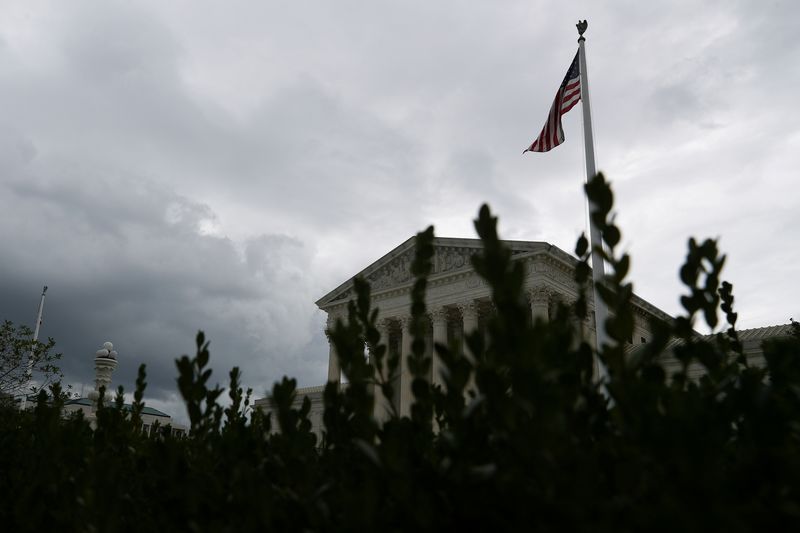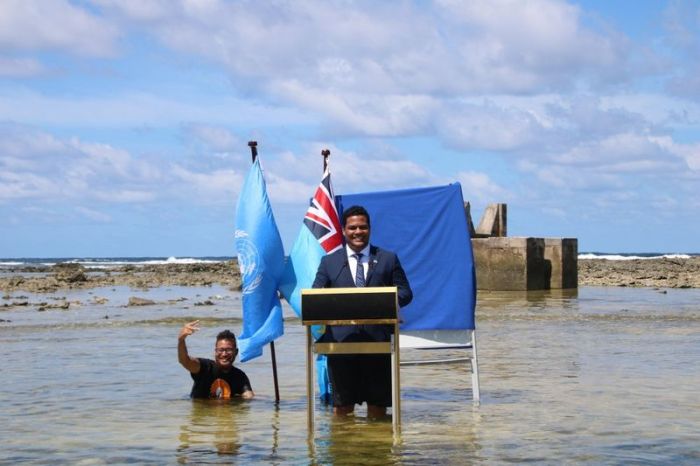(Reuters) -U.S. Supreme Court justices on Tuesday appeared divided over a bid by a man sentenced to death for a fatal 2004 stabbing outside a convenience store to have his pastor lay hands on him during his execution in Texas in a case testing how far states must go to accommodate religious requests by condemned inmates.
The justices heard more than 90 minutes of oral arguments in convicted murderer John Henry Ramirez’s appeal after Texas officials refused his request to let his Christian pastor touch him and audibly pray as he dies from the lethal injection and lower courts refused to issue a stay of execution.
The court, which has wrestled in recent years over the religious rights of death row inmates, has a 6-3 conservative majority. Some of the conservative justices raised questions about the sincerity of Ramirez’s religious request and how siding with him might affect future cases. The court’s liberal justices appeared to sympathize with Ramirez, who was not contesting his guilt in the appeal.
Lawyers for Ramirez, 37, have argued that the state’s actions violate the U.S. Constitution’s First Amendment guarantee of the free exercise of religion as well as federal law.
Conservative Justice Brett Kavanaugh questioned whether courts should second-guess a state’s interest in trying to reduce the risk of bringing outsiders into an execution chamber.
Kavanaugh challenged Ramirez’s attorney on what other accommodations a state would have to allow, including a minister hugging an inmate or “bread and wine in the execution room.”
Conservative Justice Samuel Alito wondered which body parts a spiritual advisor would need to touch.
“We’re going to have to go through the whole human anatomy with a series of cases?” Alito asked.
Conservative Justice Clarence Thomas asked if an inmate’s last-minute requests can be seen as “gaming the system” to avoid execution and raise questions about sincerity.
For both Ramirez and his pastor, laying on hands and praying are significant to their religious faith because, “like many Christians, they believe they will either ascend to heaven or descend to hell at the moment of death,” the inmate’s lawyers said in court papers.
Texas contends that Ramirez’s claims are a transparent delay tactic and that its protocol preserves the “security, integrity and solemnity” of the process and the execution team’s ability to observe signs of distress.
Liberal justices noted that states and the federal government historically have made accommodations similar to those sought by Ramirez.
“So we have experience and there’s never been a problem,” Justice Stephen Breyer, a death penalty critic, told Texas Solicitor General Judd Stone.
President Joe Biden’s administration has backed Ramirez bid for certain accommodations. But during the arguments, Justice Department lawyer Eric Feigin said Texas may be able to prevent the pastor from touching Ramirez during the injection of lethal chemicals due to the risk of disrupting the intravenous lines.
“Anything going wrong here would be catastrophic,” Feigin said.
The case centers on First Amendment religious protections and a 2000 federal law that requires officials to show a compelling interest to deny a prisoner’s religious-based request and to do so using the least restrictive means.
Ramirez was sentenced to death for the murder of Pablo Castro, a father of nine who worked nights at a convenience-store in the southern Texas city of Corpus Christi. Needing money to buy drugs, Ramirez stabbed Castro 29 times and made off with $1.25.
For the past four years, Ramirez has been a member of the Second Baptist Church in Corpus Christi, though he cannot attend services in person. Pastor Dana Moore regularly drives about 300 miles (480 km) north to Livingston to pray with Ramirez in prison.
After Ramirez sued in August, lower courts rejected his requests and declined to block his execution. The Supreme Court issued a stay in September, putting his scheduled execution on hold.
(Reporting by Andrew Chung in New York; Editing by Will Dunham)
























